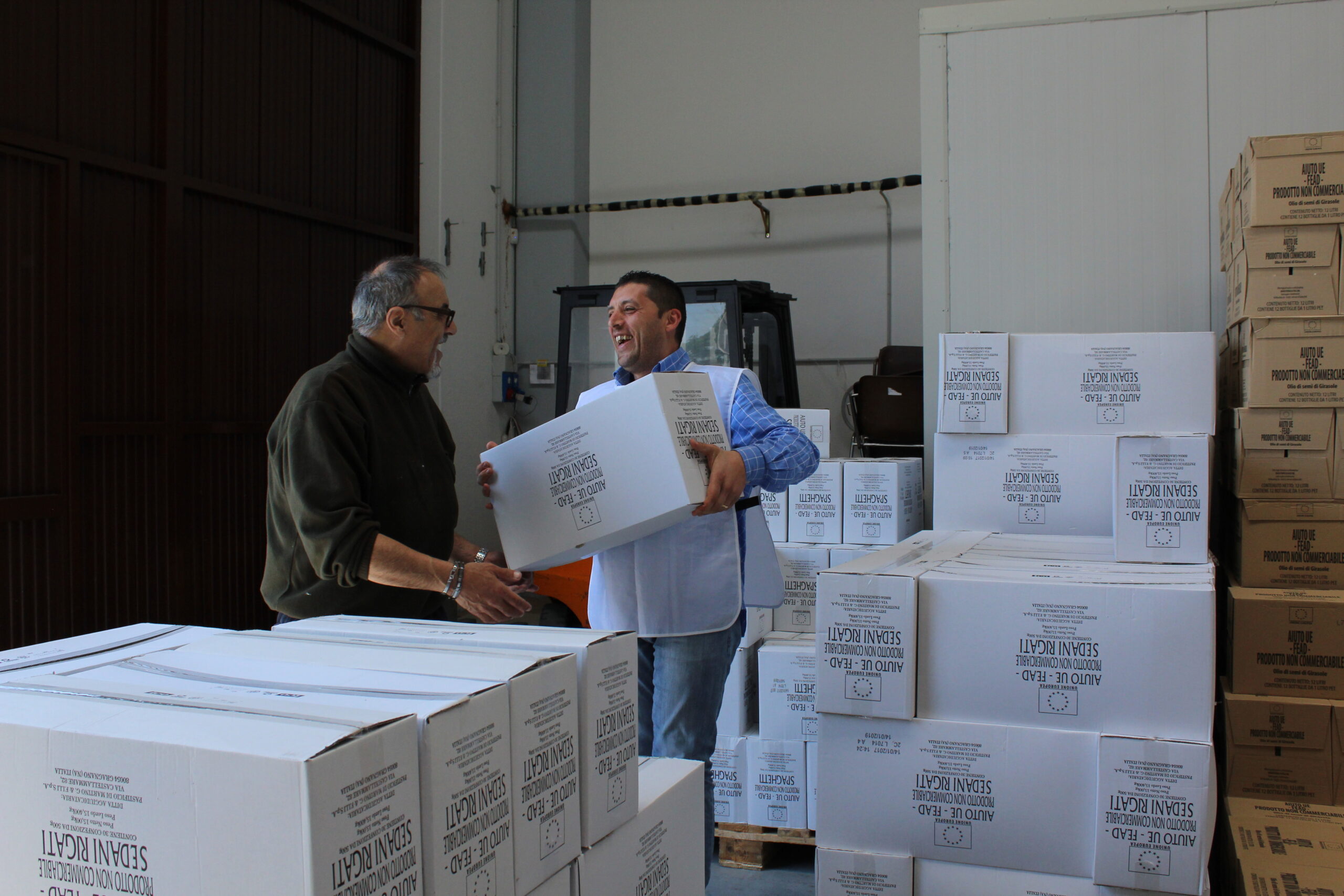The FEAD Community First Annual Conference took place virtually on 22-23 October 2020.
The Conference was the first mutual learning event of a cycle of capacity-building activities planned during the transition period (2020-2021), and aiming at improving the delivery of the Fund for European Aid to the Most Deprived (FEAD) at national, regional and local level. The event brought together local, regional and national stakeholders involved in the implementation of FEAD, including Managing Authorities, Intermediate Bodies, beneficiaries and Partner Organisations providing support, independent experts, civil society organisations and representatives from the European Commission. The European Food Banks Federation, together with many of its members, actively participated in the online conference.
Nicholas Schmit, European Commissioner for Jobs and Social Rights, opened the conference with a video message, saying that it is time to reinforce the social system and safeguard the well-being of European citizens through the European Pillar of Social Rights. In fact, the Recovery Plan (i.e. Next Generation EU) is historic and the negotiations on REACT-EU are very close to an agreement. He praised especially the volunteers who has allowed to keep the FEAD up and running during the pandemic.
Loris Di Pietrantonio, Head of Unit ESF and FEAD: Policy and Legislation, DG Employment, Social Affairs and Inclusion, European Commission remarked that the measures under the Coronavirus Response Investment Initiatives Plus (CRII+) were adopted in record time to increase flexibility, including implementing the FEAD through vouchers. The negotiations regarding the REACT-EU initiative are coming to a final agreement, which provides the possibility to top up existing FEAD funding.
During the first panel discussion, Aoibheann O’Brien from FoodCloud gave an overview on the situation in Ireland and the activity of FoodCloud especially in relation to the crisis period due to COVID-19 and the FEAD. She underlined how during the COVID-19 pandemic, FoodCloud noticed the power of local organisations. The FEAD food redistributed to local partner organisations supported by FoodCloud is extremely important to support local communities
which in turn are well established in rural and urban areas and are references point for people. There is a huge benefit of this food aid programme – it can be veryflexible but FoodCloud, as Partner Organization in Ireland, believes that FEAD can be more powerful and can be the tool to address social isolation through the support of local communities with food and material assistance.
The conference continued with interventions from representative of Red Cross Europe, Swedish Association of City Missions, Italian and Bulgarian Managing Authority, and with a final speech by Jan Behrens, Policy Officer, DG Employment, Social Affairs and Inclusion, European Commission.
At the end of the Day 1 Plenary Session Angela Frigo, FEBA Secretary General, had the opportunity to give an overview on the report that was released on the occasion of the Conference: “FEAD and European Food Banks Federation – 2019 Implementation Report”.
Day 2 of the conference started with a comprehensive presentation made by Jan Behrens from DG EMPL on updates as regards REACT-EU/Next Generation EU and the Multiannual Financial Framework, in particular the European Social Fund Plus (ESF+). The discussion continued with a focus on the study on e-vouchers conducted by Ecorys.
To conclude the conference, members of the FEAD Community Advisory Group were asked to make some final statements. Angela Frigo, FEBA Secretary General, said that time is running and there is an increase demand from the most deprived. It is key that the next REACT-EU and ESF+ are implemented at national level to accommodate and provide a concrete answer to crises, like the COVID-19, with flexibility. It is possible to think bigger and combine these policies with other European policies, like the Common Agricultural Policy (CAP), the European Green Deal, to have an integrated approach for the benefit of the most deprived.




